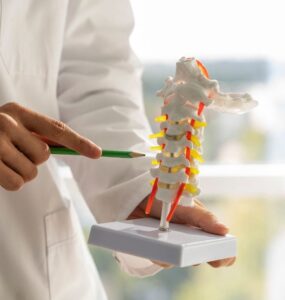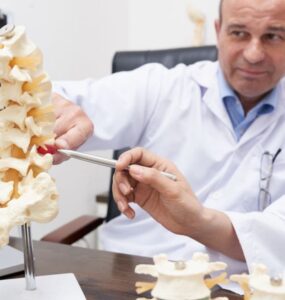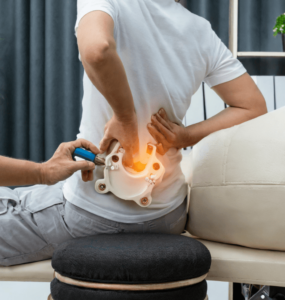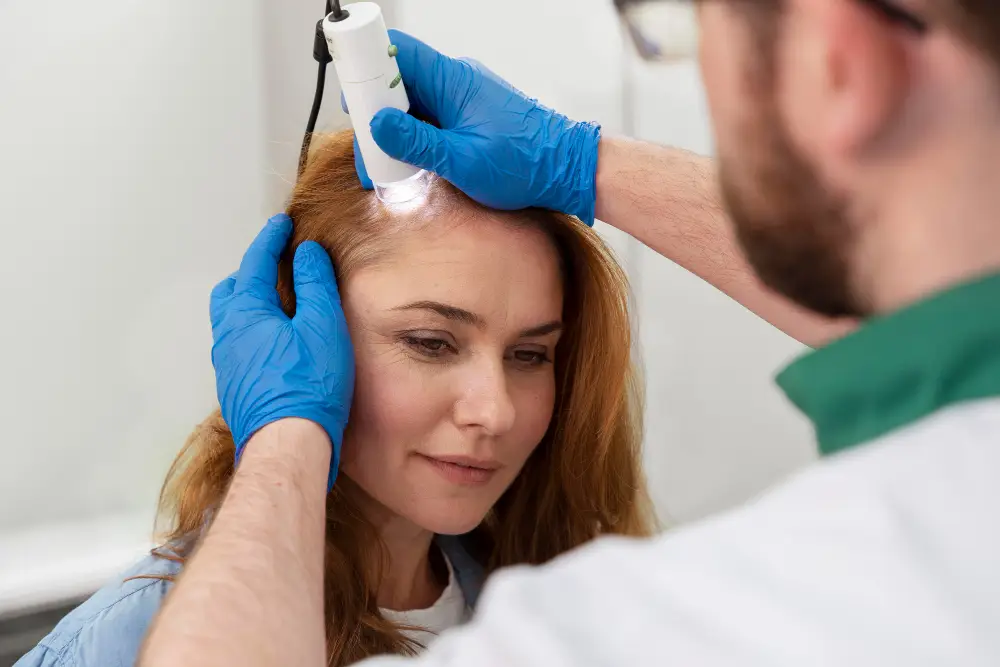
Stem Cell Treatment for Herniated Lumbar Disc: Understanding Your Options
By the Regencord Team, Patient Advocate Division
Key Takeaways for Your Lumbar Disc Journey:
- **Evolving Pathways:** Stem cell therapy for herniated lumbar discs is a field of active research, offering potential as an emerging pathway for disc repair and pain management for suitable candidates.
- **Informed Decision-Making:** Understanding the current scientific landscape, regulatory status (especially compared to the US FDA), and ethical considerations is crucial.
- **Pereira’s Advantage:** Colombia’s advanced healthcare infrastructure, coupled with Pereira’s serene environment, offers a supportive setting for those exploring international medical care.
- **Supported Journey:** Dedicated patient advocacy can transform the complexities of international medical travel into a clear, manageable process, focusing on your well-being.
- **Clarity, Not Guarantees:** The goal is to provide comprehensive information, help you assess your candidacy, and guide you towards a confident, informed decision, without promising specific outcomes.
Introduction: Navigating Your Options for Lumbar Disc Health
Living with a herniated lumbar disc can be profoundly challenging, impacting every aspect of daily life. The persistent back pain, sometimes radiating into the legs (sciatica), can lead to frustration, limited mobility, and a constant search for effective relief. For many, the conventional pathways, including physical therapy, medication, or even surgery, may not fully address their needs or come with significant apprehension.
As a lead medical communicator with the team at Regencord in Pereira, Colombia, our role is to empower you with knowledge. This comprehensive guide delves into the current understanding of stem cell treatment for herniated lumbar disc, exploring its scientific basis, the patient journey, and why a destination like Pereira, Colombia, is gaining recognition for those seeking advanced care pathways. We aim to cut through the noise, providing a clear, source-verified perspective to help you make truly informed decisions.
The Stakes: Living with a Herniated Lumbar Disc
A herniated lumbar disc occurs when the soft, jelly-like center of a spinal disc pushes through a tear in the tougher outer layer. This can compress nearby nerves, leading to pain, numbness, or weakness, particularly in the lower back and legs. The impact on an individual’s life can be immense, affecting work, hobbies, and overall well-being. Chronic back pain is a leading cause of disability worldwide, highlighting the critical need for effective interventions.
Research consistently highlights the burden of disc-related pain. According to the U.S. National Institutes of Health (NIH), low back pain is one of the most common reasons people seek medical care, and disc herniation is a frequent contributing factor. The long-term implications can range from persistent discomfort to significant neurological deficits, underscoring the importance of exploring all viable pathways for disc repair and pain management.
The Conventional Approach to Herniated Discs in the US and Beyond

For decades, the standard of care for a herniated lumbar disc has followed a progressive pathway. Initially, this often involves conservative management:
- **Rest and Activity Modification:** Limiting movements that exacerbate pain.
- **Physical Therapy:** Strengthening core muscles, improving posture, and increasing flexibility to support the spine.
- **Medications:** Over-the-counter pain relievers, anti-inflammatory drugs, muscle relaxants, or prescription pain medications.
- **Injections:** Epidural steroid injections to reduce inflammation around the affected nerves.
If conservative measures prove insufficient, surgical interventions may be considered. These typically include:
- **Microdiscectomy:** A procedure to remove the herniated portion of the disc that is pressing on a nerve.
- **Laminectomy:** Removal of part of the vertebral bone (lamina) to decompress nerve roots.
- **Spinal Fusion:** In more severe cases or for spinal instability, two or more vertebrae are permanently joined together.
While often effective, surgery carries inherent risks and can involve significant recovery periods. Many patients seek alternatives, leading to growing interest in emerging fields like regenerative medicine.
Understanding Stem Cell Therapy for Disc Repair: The Science

Stem cell treatment for herniated lumbar disc represents an evolving frontier in regenerative medicine, aiming to address the underlying disc degeneration rather than just the symptoms. The concept centers on the body’s natural healing capabilities and the unique properties of stem cells, particularly mesenchymal stem cells (MSCs).
What are Stem Cells and How Might They Help?
Mesenchymal stem cells (MSCs) are multipotent stromal cells that can differentiate into various cell types, including cartilage and bone cells. They also possess immunomodulatory and anti-inflammatory properties. For disc repair, the potential mechanisms involve:
- **Inflammation Reduction:** MSCs can secrete factors that reduce inflammation around the herniated disc and nerve roots, potentially alleviating back pain.
- **Tissue Regeneration:** There is ongoing research into MSCs’ ability to contribute to the regeneration of disc tissue, specifically the nucleus pulposus (the jelly-like center) and annulus fibrosus (the tough outer layer), thereby promoting disc repair.
- **Growth Factor Secretion:** MSCs release various growth factors that can stimulate local cells to proliferate and produce components of the extracellular matrix, crucial for disc health.
The Current Research Landscape: Autologous Stem Cell Injections and Beyond
The field of autologous stem cell injection (using a patient’s own cells) for disc repair is under active investigation. ClinicalTrials.gov lists numerous studies exploring the safety and preliminary efficacy of injecting MSCs into degenerated or herniated discs. These studies, often highlighted by the NIH, aim to determine if such interventions can reduce pain, improve function, and potentially slow or reverse disc degeneration. The focus is often on isolating MSCs from sources like bone marrow or adipose (fat) tissue.
It is important to understand that while preclinical studies and early-phase clinical trials show promise, stem cell therapy for herniated lumbar discs is still largely considered investigational in many parts of the world, including under the U.S. FDA’s current regulatory framework outside of approved research. Our approach in Pereira, Colombia, is grounded in ethical practice and a thorough understanding of the global research landscape, focusing on evidence-informed pathways for suitable candidates.
The goal of these innovative approaches is to provide a less invasive option that supports the body’s healing processes, offering a potential pathway for long-term relief and improved quality of life for those suffering from chronic back pain caused by disc herniation.
The Pereira, Colombia Advantage: A Holistic Approach to Care

For those exploring advanced care pathways for conditions like herniated lumbar discs, Pereira, Colombia, is emerging as a destination offering a compelling combination of high-quality medical services, patient-centric care, and a unique healing environment.
Robust Healthcare Infrastructure and Professional Standards
Colombia has invested significantly in its healthcare system, leading to the development of modern medical facilities and a highly trained medical community. Many hospitals and clinics in cities like Pereira meet international standards for patient safety and quality. The Colombian Ministry of Health and INVIMA (Instituto Nacional de Vigilancia de Medicamentos y Alimentos) regulate medical practices, ensuring a framework of oversight for treatments and services.
Medical professionals in Colombia often pursue advanced training, with many having international experience, contributing to a high level of clinical skill. This infrastructure provides a foundation of trust and competence that is essential for patients seeking care abroad.
The Seamless Patient Journey: A Regencord Commitment
As highlighted in our deep understanding of the patient journey, “Navigating potential advanced therapies for a chronic condition like a herniated lumbar disc, especially across international borders, often leaves patients feeling isolated and overwhelmed. Our experience underscores the profound impact of a dedicated, consistent patient advocate who serves as a single point of contact. This tailored support, from the very first inquiry through post-procedure follow-up, transforms a potentially daunting complex process into a clear, supported pathway, empowering patients to focus entirely on their healing journey rather than logistical anxieties.” This commitment to a seamless, supportive journey is central to the Regencord experience.
A Restorative Environment for Healing
Beyond clinical excellence, Pereira offers a distinctive advantage in its natural setting. As our insights reveal, “While access to advanced medical protocols is paramount, the healing environment plays an equally critical, yet frequently underestimated, role in a patient’s recovery. Pereira offers more than just high-standard clinical facilities; its unique geographical position and temperate ‘eternal spring’ climate, nestled within the verdant Coffee Region, provide a restorative backdrop. This serene, naturally beautiful setting, coupled with a cultural emphasis on warmth and hospitality, intrinsically supports physical and emotional well-being, fostering a holistic recovery experience that extends beyond the procedural aspects of care.” This holistic approach recognizes that true recovery encompasses both physical treatment and mental rejuvenation.
Access to Innovative Pathways
For patients facing persistent back pain and exploring options beyond conventional surgery, Colombia offers access to regenerative medicine pathways that align with international research trends. While it’s crucial to acknowledge the investigational nature of some treatments in a global context (e.g., as regulated by the FDA in the US), providers in Pereira adhere to rigorous protocols informed by ongoing scientific discovery and a commitment to patient safety and ethical care. The focus is on offering carefully evaluated pathways, such as autologous stem cell injection, to appropriate candidates who understand the current state of the science.
Your Guide to Informed Decisions: The Regencord Lumbar Clarity Compass

Making decisions about advanced medical pathways, especially for conditions as impactful as a herniated lumbar disc, requires careful consideration and clear information. To assist you in this process, we have developed the **Regencord Lumbar Clarity Compass** – a practical resource designed to guide you through the key aspects of evaluating your options.
This resource acts as a checklist and information hub, helping you systematically assess:
- **Understanding Your Condition:** Detailed prompts to ensure you have a comprehensive understanding of your specific diagnosis, symptoms, and medical history.
- **Exploring Treatment Pathways:** A structured guide to research and compare various treatment options, including the scientific basis for each, as informed by reliable sources like NIH and PubMed.
- **Evaluating Provider Credentials:** Questions to consider when assessing the ethical standing, regulatory compliance (e.g., INVIMA in Colombia), and patient advocacy support offered by potential care providers.
- **Preparing for International Travel:** A step-by-step checklist covering logistical aspects such as passport and visa requirements, travel insurance considerations, accommodation planning, and understanding local customs in Pereira.
- **Financial Transparency:** A framework to ensure all potential costs are understood upfront, preventing unexpected fees.
- **Post-Procedure Planning:** Guidance on what to consider for follow-up care and integration back into daily life.
The Regencord Lumbar Clarity Compass is designed to empower you with confidence and clarity, ensuring that every decision you make is well-informed and aligned with your personal health goals.
Our Regenerative Philosophy and Patient-Centered Approach

At Regencord, our philosophy is rooted in education, transparency, and patient empowerment. We understand that exploring options like stem cell treatment for herniated lumbar disc can be a complex and emotional journey. Our approach is characterized by:
- **Evidence-Informed Pathways:** We prioritize treatments and protocols that are supported by the latest scientific research, referencing authoritative sources such as the NIH and PubMed-indexed journals. Our discussions are always framed within the current understanding of regenerative medicine, including its investigational aspects.
- **Holistic Well-being:** We believe that effective care extends beyond the procedure itself. Our focus includes the patient’s physical comfort, emotional state, and overall experience, recognizing the profound connection between mind and body in healing.
- **Ethical Practice:** Upholding the highest ethical standards is paramount. We adhere to Colombian health regulations (Ministry of Health, INVIMA) and maintain transparency about the nature of treatments, avoiding any unverified claims or guarantees of outcomes. Our priority is your safety and informed consent.
- **Personalized Care Coordination:** Each patient’s journey is unique. We provide dedicated patient advocates to ensure personalized support, from initial inquiry to post-treatment follow-up, ensuring continuity and clarity.
- **Empowerment Through Education:** We strive to equip you with comprehensive knowledge about your condition and potential pathways. Our aim is for you to feel confident and fully informed at every stage of your decision-making process.
Overcoming Common Hesitations: Why Seeking Clarity is a Strategic Advantage
It’s natural to have questions and hesitations when considering advanced medical pathways, especially those involving international travel. Many patients share similar concerns, and addressing these head-on with clear, factual information is vital for building trust and enabling informed decisions.
“Is stem cell treatment for herniated discs truly effective or just hype? Is it safe, especially abroad?”
This is a crucial and valid question. At Regencord, our approach is built on acknowledging the evolving research landscape. We emphasize that our pathways are informed by robust scientific inquiry, referencing ongoing clinical trials highlighted by the NIH and findings in PubMed-indexed journals. For instance, autologous stem cell injections, which utilize a patient’s own cells, often have a more favorable safety profile compared to allogeneic sources. We operate under the stringent regulatory oversight of Colombia’s INVIMA and Ministry of Health, ensuring that protocols meet national standards. We are transparent about the investigational nature of many stem cell applications for disc conditions globally (e.g., in the context of U.S. FDA regulations), and our commitment is to provide access to evidence-informed pathways for carefully selected candidates, prioritizing patient safety and ethical practice above all.
“The logistics of international medical travel for something as serious as back pain seem too complicated and overwhelming. I wouldn’t know where to start.”
We understand this apprehension deeply. That’s why our model is built around a comprehensive, supported patient journey. Our dedicated patient advocacy team acts as your single point of contact, managing virtually all logistical aspects. From assisting with travel arrangements and comfortable accommodation in Pereira to providing local transportation, managing language support, and coordinating all medical appointments, we ensure a seamless and stress-free experience. This transforms the daunting prospect of international medical travel into a clear, manageable pathway where you can focus entirely on your well-being, knowing every detail is handled.
“How can I trust the quality of care in Colombia compared to my home country?”
Colombia has a well-established and growing medical tourism sector, supported by a robust healthcare infrastructure. Many of the medical facilities in Pereira and other major cities are modern, equipped with advanced technology, and adhere to international standards. Colombian medical professionals undergo rigorous training, with many holding international certifications and experience. Regulatory bodies like the Ministry of Health and INVIMA diligently oversee healthcare practices, ensuring quality and patient safety. Our commitment is to connect you with highly reputable providers who are dedicated to delivering professional and compassionate care, aligning with global best practices and earning the trust of international patients.
“What about the cost? Is it too good to be true, or will there be hidden fees?”
Cost is understandably a significant factor for anyone considering advanced medical care. We believe in absolute transparency. Our process begins with a confidential case review where all potential costs associated with the treatment pathway, travel, and support services are discussed in detail, upfront. There are no hidden fees. We provide a comprehensive value proposition: high-quality, personalized care in a supportive environment, often at a more accessible economic framework than comparable options in other countries. Our goal is to empower you with a clear and predictable financial understanding, so you can make decisions with complete confidence.
Glossary of Key Terms
- **Autologous Stem Cell Injection:** A procedure where stem cells are harvested from a patient’s own body (e.g., bone marrow, adipose tissue) and then re-injected into the same patient, reducing the risk of immune rejection.
- **Herniated Lumbar Disc:** A condition where the soft inner material of a spinal disc pushes through a tear in the tougher outer layer, often causing back pain and nerve compression.
- **Mesenchymal Stem Cells (MSCs):** Multipotent adult stem cells found in various tissues, recognized for their potential to differentiate into multiple cell types and their anti-inflammatory properties.
- **Neural Decompression:** Any procedure or therapy aimed at relieving pressure on a nerve, often caused by a herniated disc.
- **Nucleus Pulposus:** The soft, gel-like center of an intervertebral disc, primarily responsible for its shock-absorbing properties.
- **INVIMA:** Instituto Nacional de Vigilancia de Medicamentos y Alimentos, Colombia’s national regulatory agency responsible for overseeing the safety and quality of food, drugs, medical devices, and health services.
- **Regenerative Medicine:** A broad field focused on developing new methods to repair, replace, or regenerate damaged or diseased cells, tissues, or organs.
- **Sciatica:** Pain, numbness, or tingling that originates in the lower back and travels down the path of the sciatic nerve, typically affecting one leg.
Frequently Asked Questions (FAQ)
- Q: What exactly is a herniated lumbar disc?
- A: A herniated lumbar disc occurs when the soft center of a spinal disc pushes out through a crack in the tougher exterior, potentially irritating or compressing nearby nerves. This often leads to pain, numbness, or weakness in the lower back and legs.
- Q: How does stem cell treatment for herniated lumbar disc differ from traditional surgery?
- A: Traditional surgeries like microdiscectomy physically remove the herniated portion or fuse vertebrae. Stem cell pathways, in contrast, aim to utilize the body’s regenerative capabilities to potentially promote disc repair and reduce inflammation, often through a less invasive injection-based approach, focusing on disc repair rather than removal or fusion.
- Q: Is stem cell therapy for disc issues approved by regulatory bodies like the FDA?
- A: In the United States, many stem cell therapies for conditions like herniated lumbar discs are considered investigational by the FDA and are not widely approved outside of clinical trials. In Colombia, such pathways operate under the regulatory framework of the Ministry of Health and INVIMA, which oversees medical practices. Our team provides pathways that are evidence-informed and adhere to local ethical and safety standards.
- Q: What is “autologous stem cell injection” for back pain?
- A: Autologous stem cell injection refers to a procedure where stem cells (often mesenchymal stem cells from bone marrow or fat) are harvested from your own body, processed, and then carefully injected into the affected lumbar disc. The benefit of using your own cells is a significantly reduced risk of immune rejection.
- Q: How long does recovery typically take after such a procedure?
- A: Recovery times can vary significantly based on the specific protocol, the individual’s overall health, and the severity of their condition. While minimally invasive, a period of rest and adherence to post-procedure guidelines is typically recommended. Our team provides personalized recovery expectations during your confidential case review.
- Q: What makes Pereira, Colombia, a suitable destination for this type of care?
- A: Pereira offers modern medical facilities, highly trained professionals, and a robust regulatory environment through the Ministry of Health and INVIMA. Additionally, its serene natural beauty and temperate climate provide a conducive environment for healing and recovery, supported by a patient-centric approach to international care coordination.
- Q: What kind of support can I expect from the Regencord team if I choose to explore care in Pereira?
- A: Our dedicated patient advocacy team provides comprehensive support, including initial case review, assistance with travel logistics (flights, accommodation, local transport), language interpretation, coordination of all medical appointments, and ongoing guidance throughout your journey. Our goal is to make your experience as seamless and stress-free as possible.
Taking the Next Step: Your Confidential Case Review
Understanding your options is the first step towards finding relief from a herniated lumbar disc. The team at Regencord in Pereira, Colombia, is committed to providing clarity and support on your journey.
Discover if you are a candidate for the regenerative medicine pathways available. We invite you to reach out for a personalized, confidential case review. This is your opportunity to discuss your specific condition, explore potential pathways, and have all your questions answered without obligation. Our patient advocacy team is ready to guide you.



